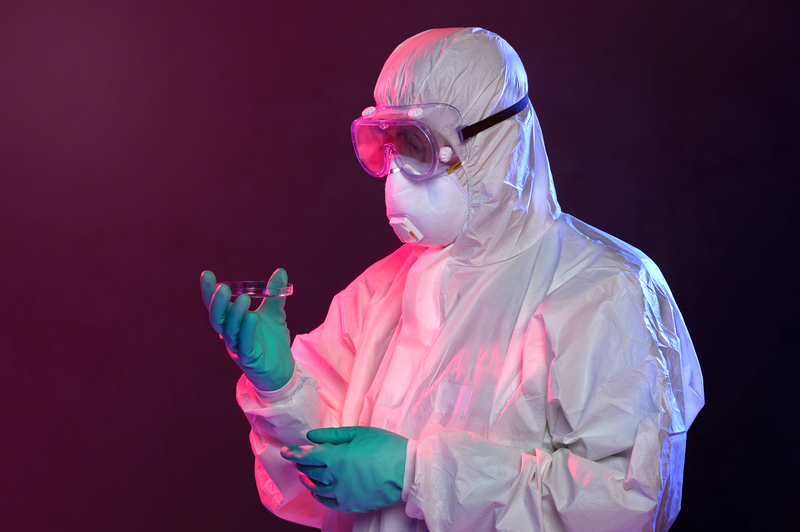C. diff Cleanup Miami FL
(786) 216-1596
C diff, also known as Clostridioides difficile, is a type of bacteria that can cause severe diarrhea and other intestinal issues. C diff is becoming increasingly common in hospitals and nursing home facilities across the United States, with Florida having one of the highest C diff infection rates in the nation. C. diff Cleanup in Miami, Florida.
C diff is easily spread through contact with feces or objects that have been exposed to C diff. The bacteria can survive for months on surfaces and objects, so it’s important to keep any areas where C diff may be present clean and sanitized. For this reason, C diff cleanup has become increasingly important in hospitals and nursing homes across Miami FL.
Clostridioides difficile cleanup involves the removal and containment of C Diff spores from an area to prevent further contamination. C Diff spores are very resistant to most disinfectants, so specialized cleaning agents must be used in order to kill them effectively. These specialized cleaners contain chemical agents such as chlorine dioxide or sodium hypochlorite which are effective at killing C Diff spores on contact. Once applied, these cleaners must remain on surfaces for up to 10 minutes before they are wiped away with a cloth or disposable wipe.
Is C. diff Dangerous? C. diff Cleanup
In addition to specialized cleaning products, C Diff cleanup also requires personal protective equipment (PPE) such as gloves, masks, gowns, and eye protection when handling contaminated items or surfaces. It is important that proper disposal procedures are followed in order to ensure no further contamination occurs after C Diff cleanup has been completed. C Diff contaminated materials should be disposed of according to local laws or regulations depending on your state or city’s requirements for medical waste disposal and handling.
Once C Diff cleanup has been completed in an area it is important that regular cleaning protocols are established and maintained in order to prevent future C Diff infections from occurring. This includes daily cleaning habits such as using approved household cleaning products with EPA registered disinfectants; washing hands often; properly sanitizing all areas after a person has vomited; and routinely changing bed linens and clothing if someone becomes infected with C Diff.
The spread of C Diff can be significantly reduced through proper hand hygiene practices and regular cleaning standards in healthcare facilities as well as other public spaces throughout Miami FL. Keeping up with these regular maintenance practices ensures that any potential exposure to C Diff spores is minimized while keeping individuals safe from infection at the same time.
Is Clostridioides difficile life-threatening? C. diff Cleanup Miami FL
Clostridioides difficile, more commonly known as C diff, is a potentially life-threatening bacterium that can cause serious health issues among those infected. C diff infections are most common in hospitals and long-term care facilities, where they are spread through contact with contaminated surfaces and medical equipment. C diff spores are highly contagious and can live on surfaces for weeks or even months after contamination.
C diff infections cause a wide range of symptoms, including severe abdominal cramps and pain, watery or bloody diarrhea, fever and/or loss of appetite. C diff can also cause dehydration, electrolyte imbalances, fatigue, weakness and weight loss in some cases. C diff infections can lead to potentially life-threatening complications such as colitis (inflammation of the colon) which can result in sepsis or death. C diff is also linked to an increased risk of developing Clostridium perfringens infection which causes necrotizing enterocolitis (inflammation of the small intestine) which is another potentially fatal condition if left untreated.
C. diff prevention
In order to prevent C diff infections in high-risk environments like hospitals and long-term care facilities, it’s important to practice good hygiene by washing hands regularly with soap and hot water for at least 20 seconds before eating or preparing food. Healthcare workers should also wear protective gloves when handling C diff patients in order to prevent spread from person to person contact. Additionally, surfaces should be disinfected regularly using EPA approved products that have been tested against C diff spores in order to prevent spread from surface contact as well as regular laundering of bedding and clothing contaminated by Cdiff patients.
The best way to treat Cdiff infection is with antibiotics such as metronidazole or vancomycin but sometimes surgery may be required if the infection has become severe or has caused complications like colitis. It’s important to seek immediate medical help if you experience any symptoms associated with Cdiff infection so that you can get the proper treatment quickly in order to reduce the risk of more serious health issues down the line including death.
